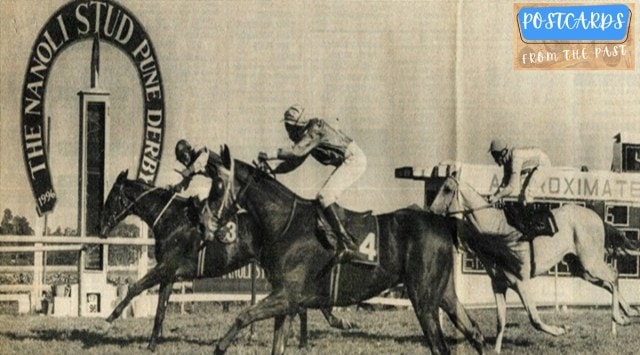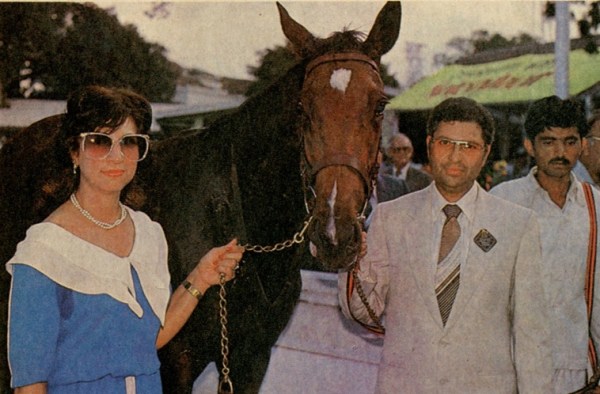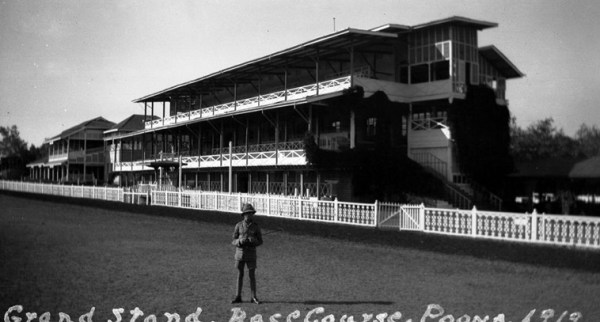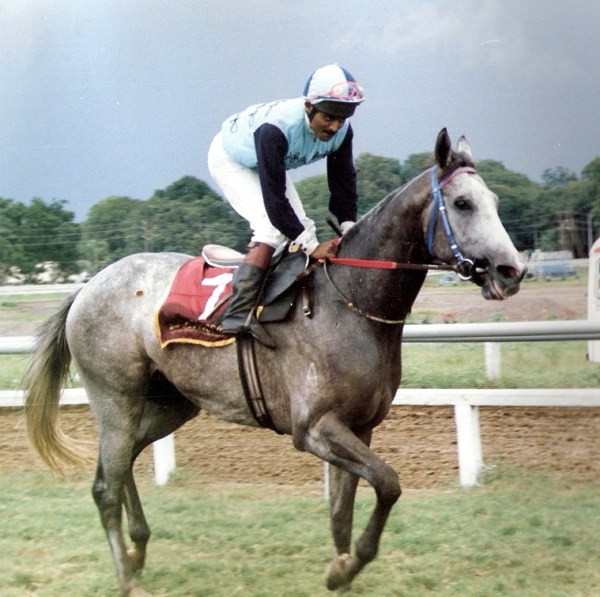On Pune Derby day, race enthusiasts recollect racy days of the yore and how things have changed | Indian Express
Posted on - 16 Oct 2023
On Pune Derby day, race enthusiasts recollect racy days of the yore and how things have changed
Listen to this article

Surendra R Sanas, Chairman, Royal Western India Turf Club (RWITC), is trying hard to recreate the earlier appeal for racing by
sponsoring the Pune Derby on Sunday, October 15, and bringing music, food, and drink onto the race course.
Everyone remembers the special train. This was during British rule when the Indian Railway was called the Great Indian Peninsula Railway for those who wanted to attend horse racing in Pune from Bombay.
While the practice was discontinued after Independence, the National Association for the Blind (NAB) revived it between 1960-80, when they ran a special charity train to and from Mumbai on August 15 for the Independence Day race. The train would return to Bombay, late in the evening, the same day.
The tickets for the journey would be high and all proceeds went to the NAB. The journey itself used to be an event with comperes and singers providing live entertainment through the journey as they moved from one compartment to another occupied by the elite. The icing on the cake would be the presence of the patrons of NAB, actors Dilip Kumar and Saira Banu who would also move from one coach to another and give autographs to the travellers.
Bringing back the charm
This is just one of the many examples of what horse racing used to be in the early days – a sport marked by glamour, high living, passion, and popularity.
“Those were the days,” says Surendra R Sanas, Chairman, Royal Western India Turf Club (RWITC), who is trying hard to recreate the earlier appeal for racing by sponsoring the Pune Derby on Sunday, October 15, and bringing music, food, and drink onto the race course.
“But it’s an uphill task. The crowds over the years have dwindled and youngsters are not into racing so much. Plus, the 28 per cent tax is not helping the game at all. The race days in Pune for example have now come down to 19 from the earlier 35-40. It’s the same for Mumbai,” he adds.
“Earlier, people would also really dress up for the important race days and it was a prestigious moment to be seen at the course or members’ enclosure in their best. Now, formal dressing has taken a backseat and people are more into casuals, citing reasons like heat etc. The charm is receding but we are trying our best to counter it.”

Horse racing used to be sport marked by glamour, high living, passion, and popularity.
First races and hardy champions
Khushru Dhunjibhoy, who sponsored more than a dozen derbies in the past in Pune, fondly recollects his first Derby win. “The horse was called Indictment and the feeling was sheer euphoria. You can’t compete with that. Of course, we would open [a] champagne [bottle] and party. There would be Derby billboards all over town. Most of us spent half the monsoon just travelling between Mumbai and Pune on the Decan Queen,” says Dhunjibhoy, who owns the Nanoli stud farm and scores of horses.
“I still remember my first horse though, Mr Hardy as in Laurel and Hardy,” he smiles.
Few though can beat the memory and racing information that Jehangir Rustomjee possesses.
Often referred to as the historian of horse racing in Pune and Mumbai, Rustomjee, who moved to Bahrain a few years ago and is the stables in charge and registrar for the royal court, continues to be a regular at the race course during the season. He needs little time to rattle off his memories of racing and the Derby.
“I clearly remember the very first running of the Pune Derby in 1984. It was won in facile fashion by the rangy big-built Malvado-sired filly Prudential Champ, named in honour of our cricket team’s first World Cup triumph at Lords the previous year. She chose this day to put her best foot forward to trounce future multi-classic winners Prima Facie and Revelation. The winner trained by the legendary Uttam Singh never reproduced this form and whipped around at the start of her very next outing in the Indian 1000 Guineas unceremoniously depositing a furious Sandy Barclay on the turf. Champion jockey Aslam Kader rode Prudential Champ to her Pune Derby triumph”.

Surendra R Sanas, Chairman, Royal Western India Turf Club (RWITC), is trying hard to recreate the earlier appeal for racing by
sponsoring the Pune Derby on Sunday, October 15, and bringing music, food, and drink onto the race course.
Another memorable race that broke my heart, but remains unforgettable nevertheless, was the Indian Turf Invitation Cup of 1979. The darlings of Western India Royal Tern and the 19-year-old Karl Umrigar were the absolute public rage. They were opposed by a trio of colts from the south all sporting the gold and brown silks of the late turf baron MAM Ramaswamy. Some completely legitimate tactics were used to overturn the Western India champion, but he still fought tooth and nail only to go down grimly to Own Opinion, no slouch himself. Both Squanderer and Own Opinion were ridden by the peerless champion jockey Jagdish,” recollects Rustomjee.
He also talks of the very popular Independence and Southern Command Cups. “They have always and continue to be big race days in Pune usually graced by a VVIP and the top Army brass, respectively. The GOC Southern Command in the case of the latter. I remember a full mock military drill carried out in 2016 which was spectacular. Massed military bands and paratroopers dropping out of the sky have been features of other editions. A military band plays the National Anthem at both meetings,” reminisces Rustomjee.
From colourful tickets to printouts
For Rustomjee, the racecourse has always meant racing, however, he is not impervious to the changes that the sport has undergone over the years.

For Rustomjee, the racecourse has always meant racing, however, he is not impervious to the changes that the sport has '
undergone over the years. (Credits: Jehangir Rustomjee)
“All the colourful betting tickets have now been replaced by computerised printouts and digital displays replacing all the manually operated tote boards and information boards. But technology has maybe not helped the sport like it could have. Live racing available on the internet and a lack of forward-thinking by the clubs has seen crowds at the races dwindling at an alarming rate,” he points out.
“Slightly less so in Pune which still draws an enthusiastic crowd of knowledgeable and sometimes vociferous punters. The races are still a dressy event for owners and professionals and their friends and supporters, but not like earlier of course.”
Incidentally, Rustomjee, who does not bet, feels the term historian is too flattering for him.
“I like to see myself as an archivist. To preserve and share the history of this amazing and thrilling sport which is at a crossroads all over the world for varying reasons. I do not bet. I just feel an affinity for horses. I can hear them, feel them, and understand them. That’s the passion”.


